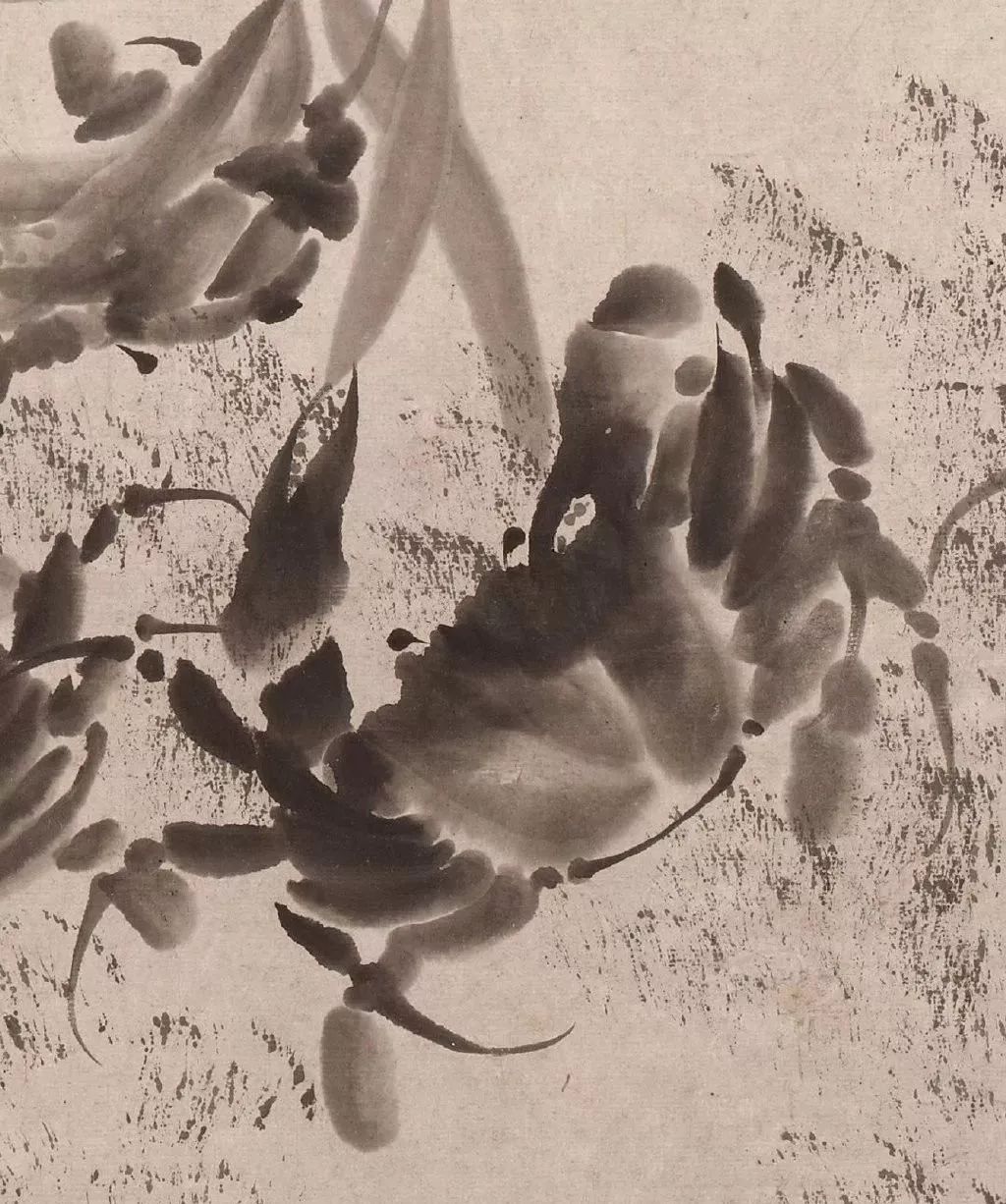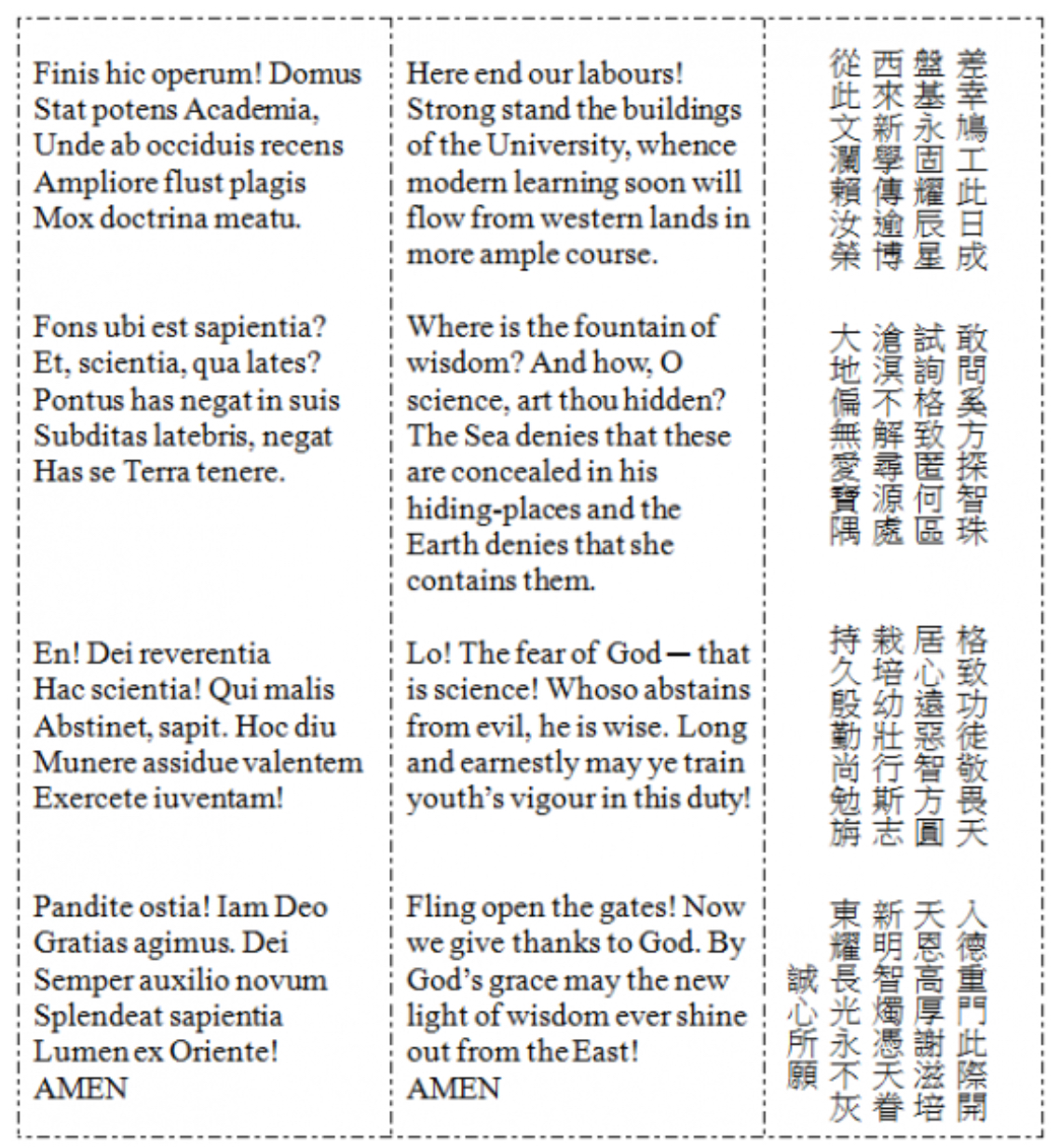Hong Kong Apostasy
In this chapter in our ‘The Best China’ series devoted to the 2019 Anti-Extradition Bill Protest Movement — or the Hong Kong Uprising — we return to the poetry of P.K. Leung 梁秉鈞 by way of a paean to the city composed by Cecil Clementi, governor of the crown colony of Hong Kong, in 1925. We conclude with the original Hong Kong University anthem written by Clementi which, as John Minford notes, ends with the words:
Splendeat Sapientiae Lumen ex Oriente
May the Light of Wisdom Shine from the East!
We would also note that P.K.’s poem will be included in Selected Poems of P. K. Leung, one of a series of six books by leading Hong Kong writers edited by John Minford.
Geremie R. Barmé
Editor, China Heritage
18 September 2019
***
Further Reading:
- Leung Ping-kwan (P.K.) 梁秉鈞, et al, ‘Cauldron 鼎’, China Heritage, 1 July 2017
- P.K. Leung 梁秉鈞, ‘Terracotta Warriors on the Rhine 萊茵河旁的兵馬俑’, trans. John Minford, China Heritage, 18 April 2019
- P.K. Leung 梁秉鈞, ‘Leaf Margin 邊葉 — a poem by P.K. Leung’, trans. John Minford, China Heritage, 8 September 2019
- Lu Xun 魯迅, ‘On Hong Kong 略談香港’, trans. Zhu Zhiyu with Don J. Cohn, Renditions: Hong Kong Special Issue, 1988
‘Hong Kong 1925’
A Poem by Cecil Clementi
Governor of Hong Kong
&
A Response by
Leung Ping-kwan in 1997
When serving as a junior colonial civil servant in the New Territories, Clementi had produced a fine verse translation of the collection Cantonese Love Songs 粵謳, originally written in Canton in 1828 by Chiû Tsz-yung (招子庸, 1786-1847). His translation was published by the Clarendon Press in 1904. They also published, in 1911, his translation of the third-century Latin classic, the Pervigilium Veneris.
Clementi was mocked for his use of Cantonese by the mean-spirited Leftist writer Lu Xun, after a visit to Hong Kong in 1927. Typically, P.K. Leung had a more subtle and nuanced appreciation of this remarkable man. In 1997, in the impending shadow of the infamous Handover ceremony, I drew his attention to this extraordinary effusion, this full-blown Kiplingesque Ode to ‘England in Cathay’. P.K. immediately decided to write a reply, in the time-honoured Chinese tradition of one poet ‘echoing’ another’s words and rhymes, or 和詩. I tried to capture something of this irony in my translation. Fun was had by all. We recited the various connected poems at a public reading held in the LockCha Teahouse 樂茶軒 after the 2012 Hong Kong Translation Symposium.
— John Minford
Wairarapa
18 September 2019
***

***
Hong Kong 1925
Cecil Clementi
Lamp-bestarr’d and with the star-shine gleaming
From her midnight canopy or dreaming,
Mirror’d in her fragrant, fair lagoon:
All her streets ablaze with sheen and shimmer;
All her fire-fly shipping-lights a-glimmer,
Fitting, flashing, curving past Kowloon.Oh, to see her thus! Her hill-recesses
Bright with household glow that cheers and blesses
Weary men and guides them home to rest:
And the criss-cross strings of lights ascending
Round the Peak, a-sparkle, circling, ending
Where the roadways touch the mountain crest.Ending? No! For human aspiration
Passes here to starry consummation,
Mountain-roads into the Milky Way.
Earth is strewn with Danae’s golden dower.
Grandly here the Master Builder’s power
Crowns the work of England in Cathay!
Government House, Hong Kong
1 November 1925
***
Mourning The Loss, 1997
In Response to Cecil Clementi
P.K. Leung
I gaze from the foot of the mountain
And espy
Not a single fire-fly
Steaming by,
Not a single star
Gleaming in the sky;
No fairy lights on an earthly paradise
But a Special Economic Zone
Lit up in a blaze of Japanese neon
Dazzling the eye.
See how hard I have to try
To squeeze myself into your foreign rhyme!
For years I’ve had to stammer like this
In your borrowed tongue!
So what do I feel now? Indifference?
Or a strange nostalgia?
Now that you’re going — gone…Images flit past,
A-sparkle and a-flash!
Another older rhapsody, an older rhetoric,
Takes the measure of us now,
Trusses us up in its strong calligraphy of tradition,
Condescends to dribble upon us a drop of scholar’s ink
And here we are — doubly cultural waifs —
No match for your aspirations.
Hearing your fulsome eulogy
In utter seriousness, without a snigger,
We watch silently by the deathbed.An ending? No!
A passing, a surviving, a tossing and a turning;
Will the merchants and the soldiers
Dance together for joy,
Or will they mock the starry consummation?
The old commerce of words will surely continue a-pace;
Everyone has grown accustomed to moving
Within the old, stiff format.
And there they lie —
You misty isle, you haze-wrapped waters of Albion,
While the towering peaks of our New Cathay
Bear down upon us,
Crushing, burying the pearl!
An ending? Perhaps?
Not?
Summer 1997
悼逝去的
── 和金文泰香港詩
我從山腳下仰望已經看不見星空
太燦爛了日本電器廣告牌一重重
不會以爲這是蓬萊這經濟的特區
費盡思量勉強步和你異鄉的韻律
多年來你的言語總令我結結巴巴
是冷漠還是傷感呢對於你的離去?
眼前閃過一列又一列璀璨的意象
猶似漢賦雕辯滔滔把我們來丈量
書寫我們在傳統的鐵劃銀勾之中
灑落一點墨跡,是被棄的文字孤兒
不如你的期望,聆聽世代人的善頌
我們沒有竊笑,默對你彌留的病床
完了嗎?不,消逝了又倖存,輾轉反側
商人與士兵共舞取悅抑嘲諷星辰?
在言語買賣裡也做過歡快的生意
大家習慣了在僵硬的形式裡舒伸
霧島迷湖同巍巍崑崙泰山壓頂
把寶珠埋葬,這樣就完了嗎?或許?不?
1997年夏天
Hong Kong University Anthem
The University Anthem was first performed at the Opening Ceremony of the University held on Monday, 11 March 1912, in front of the then newly completed Main Building. It was performed by the Choir of the St John’s Cathedral, the Chorus of the Philharmonic Society, and the full Military Band of the 1st Battalion, King’s Own Yorkshire Light Infantry.
The music was composed by Denman Fuller and the Latin verses by Cecil Clementi. The anthem was used at formal University occasions until the 1930s, but after the war it was largely forgotten, preserved in the archives as an historical curiosity that could be seen but seldom heard.
To celebrate the University’s centenary, this 100-year-old anthem has been revived. The music has been reconstructed from the original parts, re-orchestrated and recorded, bringing an old tradition back to life for a new century.
Department of Music
Hong Kong University
***


